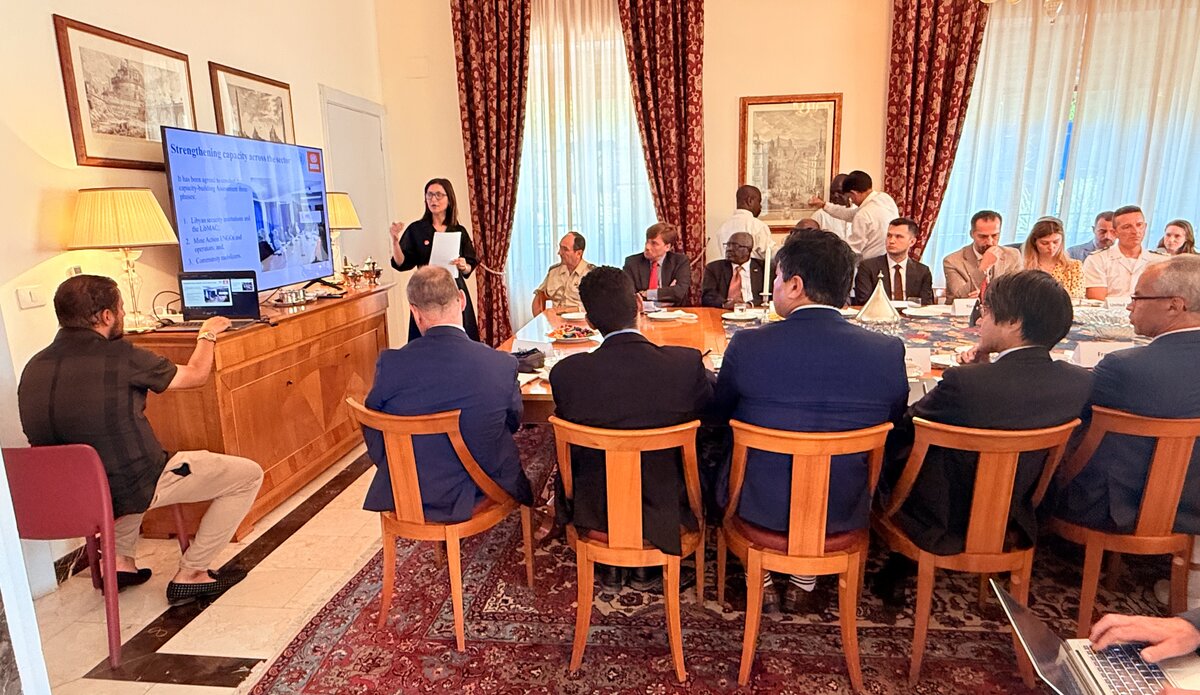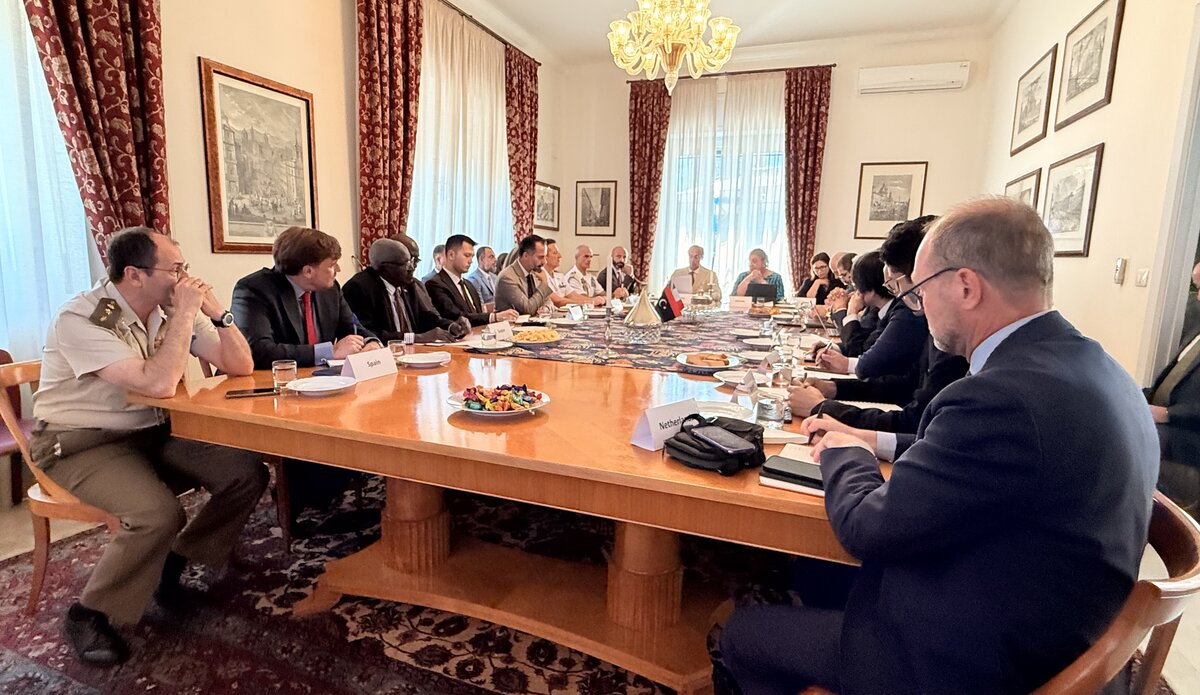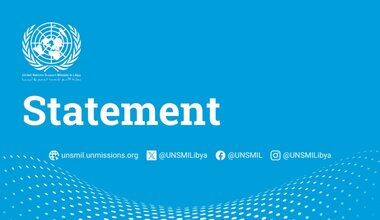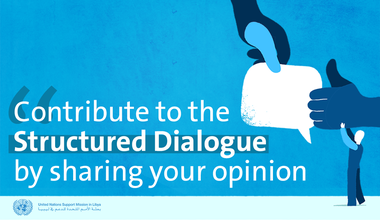Charting a mine-free future: UNSMIL and Italy convene Libya’s first Mine Action Support Group
TRIPOLI – The United Nations Support Mission in Libya and the Government of Italy brought together international partners for the first Libya Mine Action Support Group in Tripoli on Tuesday, which focused on better protecting the people of Libya from mines and unexploded ordnance.
The meeting aimed to enhance coordination among donor states, facilitate discussion on mine action activities in Libya, and highlight critical funding gaps and priority needs to better coordinate support to the sector.
“Supporting mine action in Libya is not just about clearance. It is about protection, dignity, and hope,” said Special Representative of the Secretary General, Hanna Tetteh. “What Libyans cannot afford is more contamination, more loss, and more fear. Libya needs stability, not more explosive hazards.”
Despite relative calm in parts of Libya, mines and unexploded ordnance from sporadic clashes and long-standing contamination continue to endanger civilians. Since 2020, more than 420 casualties have been recorded due to explosive remnants of war. However, these figures do not reflect the full reality, they only represent the confirmed incidents.
SRSG Tetteh urged the international community to focus on the value of every life impacted. “We must never measure suffering in numbers,” she said. “The life of one child, one farmer, one worker; each life holds equal value. Every step towards safety and recovery matters.”
The meeting was hosted by the Ambassador of Italy to Libya, Gianluca Alberini, who welcomed participants with a message of solidarity and emphasized the urgency of collective responsibility. “Italy remains a steadfast partner in Libya’s path to safety and stability,” he said. “Our commitment to mine action is rooted in our belief that every life saved, every community cleared, is a step toward peace.”
The Chief of the Mine Action Programme in Libya, Fatma Zourrig, delivered a presentation on efforts to clear explosive hazards in Libya, strengthen national capacity, and called for sustained support to ensure long-term safety and stability. As of mid-2025, over 438 million square meters remain contaminated. Since 2011, mine action partners have cleared nearly 248 million square meters, while delivering between 2023-mid 2025 more than 13,600 risk education sessions to over 104,000 beneficiaries, including thousands of women and girls.
Significant institutional progress was also highlighted. The Libya National Mine Action Strategy is currently under development, alongside an ongoing review of Libyan Mine Action Standards. Originally developed with the support of UNMAS in 2015 and adopted and published Libyan Mine Action Centre in 2017, the revised standards will ensure alignment with global best practices.
The gathering came in support of the Secretary‑General’s global campaign, which upholds humanitarian disarmament, accelerates mine action as an enabler of human rights and sustainable development, and drives forward the vision of a mine-free world.
 United Nations Peacekeeping
United Nations Peacekeeping UN
UN













